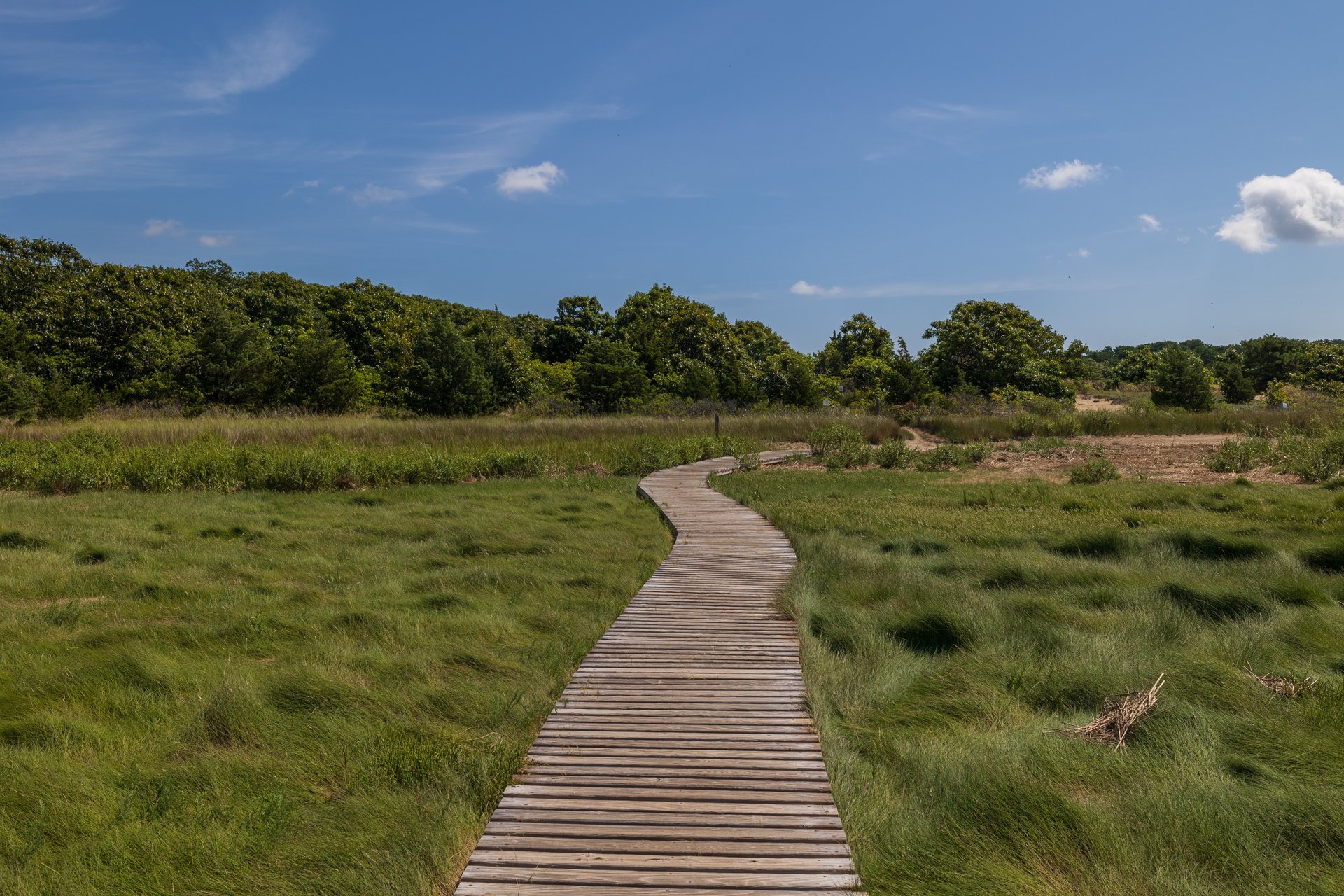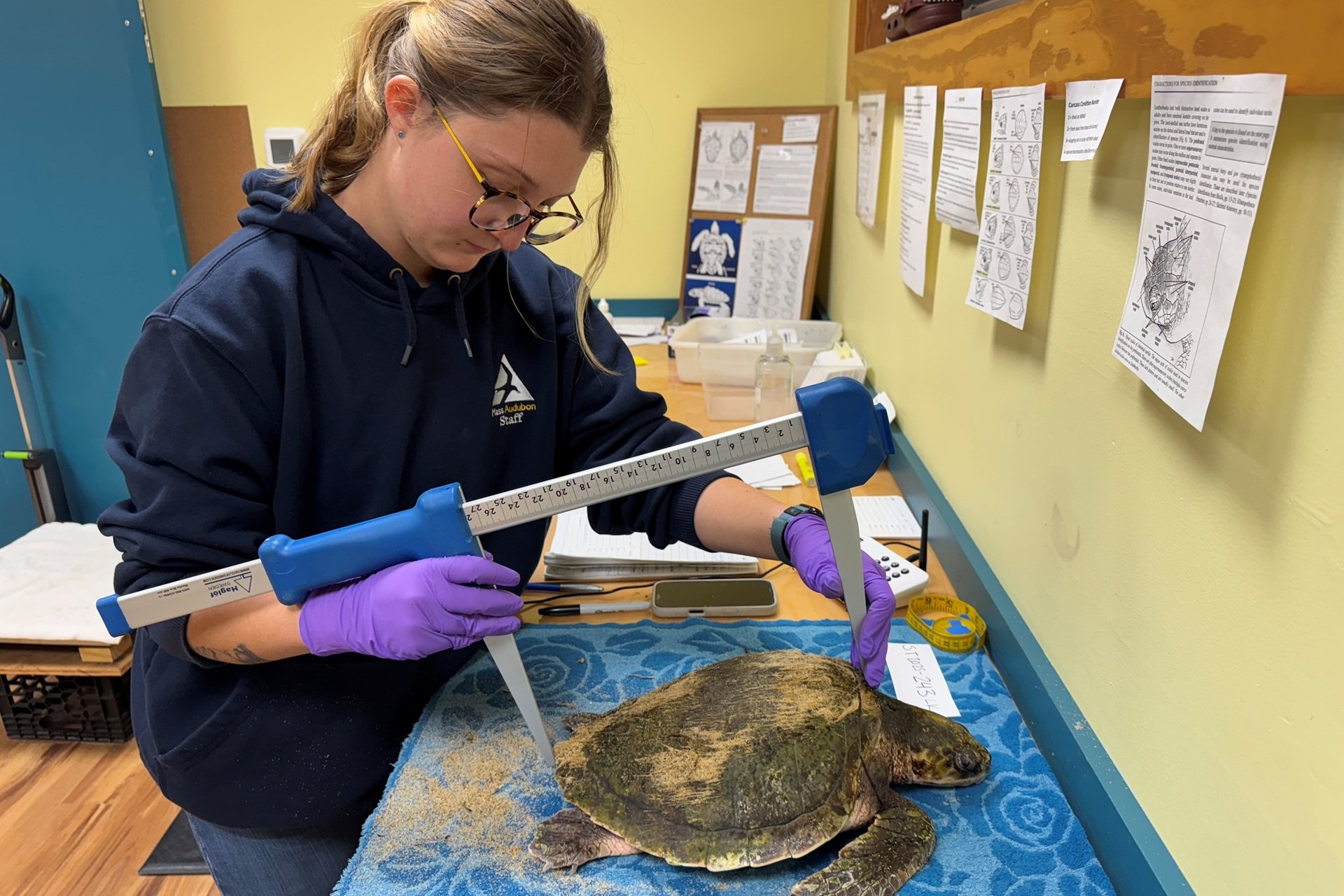When the Kemp’s ridleys, Greens, and Loggerhead Sea Turtles begin their journey south to warmer waters each fall, some immature turtles become “trapped” by the hooked shape of Cape Cod.
As ocean temperatures drop, the turtles become cold-stunned—a hypothermic state that leaves them unable to swim—and wash onto the beach.
Mass Audubon sea turtle staff and volunteers are the federally permitted first responders, patrolling the beaches day and night, often in frigid temperatures, to find stranded turtles. Once found, our team works swiftly to recover, assess, stabilize, and transport each turtle to the New England Aquarium’s Sea Turtle Hospital for rehabilitation.
An Intense Start to the Season
The 2025 stranding season is off to a fast start, driven by a long stretch of persistent northwest winds pushing turtles ashore. As of November 20, 232 sea turtles have been recovered from Cape Cod Bay beaches—nearly 200 more than at this time last year. Of these, 179 are Kemp’s ridleys, the most endangered sea turtle species in the world.
What To Do if You Find a Sea Turtle
If you come across a sea turtle on the beach, please follow these simple steps:
- Carefully move the turtle above the high tide line.
- Cover it completely with dry seaweed or wrack.
- Mark the spot clearly using a buoy, driftwood, or branches, or draw a large circle in the sand to ensure rescuers can locate it quickly.
- Call the Wellfleet Bay Wildlife Sanctuary 24/7 Sea Turtle Hotline at 508-349-2615, Option 2.
Watch Sea Turtle Rescues in Action
Stay Connected
Don't miss a beat on all the ways you can get outdoors, celebrate nature, and get involved.





